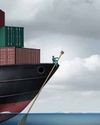
Mongla, the second largest seaport in Bangladesh became functional in December 1950. The port contributed to the economic uplift of the country over the decades, but later it became a losing concern.The southern region of the country is now witnessing massive development activities with the ongoing implementation of the Dhaka-Mawa-Mongla upgradation, Padma Multipurpose Bridge Project, Construction of Khanjahan Ali Airport, coal-based power plant in Rampal, Special Economic Zone near Mongla Port, extension of Mongla EPZ and the construction of Rooppur Nuclear Power Plant.
But currently the port has lower draft, lacks a container jetty and connectivity to rest of the country, which is affecting the export and import business. Therefore, capacity upgradation of Mongla Port has become a demand of time, as the port continues to remain underutilized due to its poor facilities and lower draft.
The port currently operates through six own jetties alongside seven private jetties which enable it to conveniently handle 35 ships at a time through 22 anchorages.
Mongla port upgrade
After 2009 the new government in Bangladesh has initiated many steps to develop the port and gradually it became a profitable one. In October 2017, Bangladesh and China signed a memorandum of understanding (MoU) to develop Mongla Port at a cost of approximately Tk 3000 crore. The projects includes construction of four jetties and two yards, a large multistoried garage for car parking, four lane roads, procurement of 11 survey and tug boats and modern machineries for handling cargo and containers.
Denne historien er fra November 2019-utgaven av Maritime Gateway.
Start din 7-dagers gratis prøveperiode på Magzter GOLD for å få tilgang til tusenvis av utvalgte premiumhistorier og 9000+ magasiner og aviser.
Allerede abonnent ? Logg på
Denne historien er fra November 2019-utgaven av Maritime Gateway.
Start din 7-dagers gratis prøveperiode på Magzter GOLD for å få tilgang til tusenvis av utvalgte premiumhistorier og 9000+ magasiner og aviser.
Allerede abonnent? Logg på

Impact Of Covid-19 On Shipping And Logistics
Industry stalwarts discuss threadbare the prevailing logistics and supply chain scenario and issues in clearing cargo during the COVID-19 lockdown

Digital Platforms Defy Lockdown
Digital trading modules such as eNAM are enabling farmers to move their produce from farm to market even during the lockdown

GARMENT TRADE TRAMPLED
As retailers face a shutdown in US and Europe, the cascading affect has caused mass cancellation of orders in Bangladesh

TRADE RESUMES WITH CHINA
While India has allowed uninterrupted movement of imports into Nepal even during lockdown, China is reopening its borders as it emerges from the pandemic
LESS HUMAN INTENSIVE, MORE DATA DRIVEN
AI provides transformational opportunity for logistics industry by improving customer experience, operational efficiency, faster turnaround time and lower cost while ensuring security and transparency. Macro environment requires industry to transform to be less human intensive, agile and data driven, all of which can be accelerated by AI adoption, shares Gangadhar Gude, Founder & CEO, atai.ai

SHAKEN AND STIRRED
The COVID-19 pandemic has partially paralysed the logistics and supply chain, but the industry is still deterred to ensure supply of essentials continues

TRADE STUCK, ECONOMY SLOWS DOWN
Sri Lankan economy slows down as trade deficit widens and supply chain disrupts amidst lockdown

LENDING INTELLIGENCE TO SUPPLY CHAIN
If you’re shipping millions of dollars’ worth of pharmaceuticals, high-end electronics, expensive seafood, or precious metals, what would you be willing to pay for the ability to ‘ask’ your shipment where it is right now and whether it’s ok? What would you pay for a freight smart enough to raise an alarm before it spoils? Artificial Intelligence enables that and much more…

CONTAINER LINES SIGNAL ‘SOS'
As the per-unit cost of operations increases many lines are forced to blank sailings which has hit their bottom line real hard. The Government and Terminal Operators therefore need to actively consider reduction in Vessel Related Costs

IMO 2020 And The Covid-19 Curse
The COVID-19 outbreak has shaken and stirred the already volatile bunker market. While the refiners adjust their capacities and shipping lines choose their path to compliance, the market dynamics are yet to reach an equilibrium